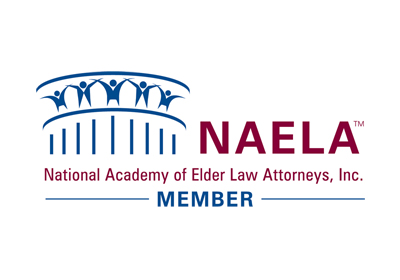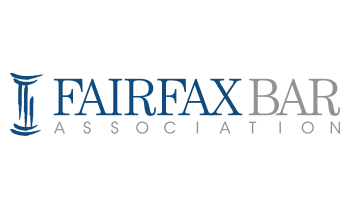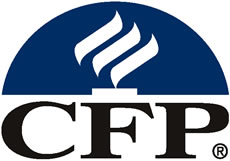Adult Guardianships and Conservatorships
1. Overview
The reality is that many people will become disabled one or more times during their lifetime. Should that occur, who will have the necessary legal authority to make medical decisions for you, or to access and manage your financial assets? Absent key legal documents, very likely no one. Should that occur, the only recourse available is to petition the court for the authority needed.
There are two types of authority the court is typically asked to grant when someone becomes disabled. One is a petition to have someone appointed Guardian of the Person; the other is a petition to become Conservator (essentially a trustee) of the Assets. Each are discussed below.
2. Petition to be Guardian of the Person
A petition to be appointed guardian of an adult person generally takes about three to four weeks to accomplish. A written petition must be filed with the court. The minimal contents of the petition are prescribed by statute. Typically the petition is not something a lay person should undertake without the assistance of legal counsel, and certainly if the request is time sensitive.
3. Petition to be Appointed Conservator of the Assets
If there are assets that need to be managed, a petition to be appointed Conservator of the Assets is filed with the court. Again, the minimal contents of the petition for conservator are prescribed by statute, must be in writing, and this is best pursued with the assistance of legal counsel. Most times the petitions for Guardianship and Conservator are incorporated into a single petition. Be advised that Conservators must be bonded with surety, so if there is any concern about whether an insurance company will bond a proposed Conservator, that should investigated before undertaking to petition the court.
4. Guardian ad Litem
A petition for Guardianship and Conservatorship will trigger the appointment by the court of a duly qualified attorney to serve as Guardian ad litem or GAL. The role of the GAL is to investigate the facts of the petition, the people seeking to be appointed as Guardian and Conservator, the claim of disability, meet with the person over whom the Guardianship and Conservatorship is being sought to advise them of their rights, and much more, and then submit a written report with recommendations to the Court. The GAL is paid a fee, approved by the court, and that fee is either charged against the assets of the person over whom the guardianship or conservatorship is sought, or if that person is found to be indigent, then it is paid by the Commonwealth of Virginia.
5. Qualification After Court Order Entered
Once appointed by the court as Guardian or Conservator, the Guardian and Conservator still have no authority to act. With the court order in hand, the Guardian and Conservator need to go to the Probate Office to be formally “qualified”. Typically that is done immediately following the court hearing.
Both the Guardian and Conservator are subject to bonding requirements set forth in the court order appointing them. There are two components of the bonding obligation: one, a dollar amount for the bond will be set in the court order; and two, the bond will either be insured by a bonding company or not, referred to as being “with surety” or “without surety.
In the case of the Guardian, the dollar amount of the bond is typically set at $1000 and no surety is required to insure the Guardian bond amount.
The bonding of a Conservator is more complicated. The dollar amount of the bond is a multiple [varies by jurisdiction] of the value of the assets the Conservator will control. And, very importantly, the Conservator will have to get a bonding company to provide “surety” (insure) for the bond amount to insure that the Conservator will perform appropriately. In order to obtain a bond insured by a bonding company, the Conservator must be credit worthy, and if there is any question as to whether the proposed Conservator will qualify, then it would be prudent to investigate that with a bonding company before filing the petition.
6. Oversight by the Commissioner of Accounts
Except in limited situations, all Conservators are supervised by the Commissioner of Accounts serving the court who appointed the Conservator. This means, in short, that all money received, and all money disbursed by the Conservator will be accounted to the Commissioner of Accounts once a year. Please be forewarned that failure to properly handle the funds, or account for the funds disbursed, may result in the Commissioner of Accounts initiating legal action to have the court revoke the authority of the Conservator and appoint someone else. A Conservator would be well advised to get guidance from someone who is experienced in this area at the outset and with each accounting to be filed.
7. What Typically Happens?
We have been doing this type of work for many years. By and large, most petitions to be appointed Guardian and Conservator are brought for good reasons by family members or close friends trying to address legitimate needs of a loved one. In those instances, the case proceeds as follows:
-
the petition for appointment of a guardian and conservator is filed with no court date set for the hearing,
-
the court then appoints a guardian ad litem/GAL,
-
the GAL investigates the petition and petitioners, speaks with family members, respondent (person alleged to be disabled), the doctors cited in the petition, reviews financial information,
-
GAL and counsel for the petitioner agree on a court date to hear the petition,
-
the GAL visits the respondent, the family member alleged to be disabled, and serves him with all the legal papers, advises him of his legal rights
-
The respondent does not oppose the petition, or the appointment of the petitioners to serve as Guardian or Conservator, does not want to be represented by an attorney, and has no interest in attending the hearing
-
the GAL writes a report that endorses the petitioner’s proposed appointment as Guardian and Conservator, and files it with the court.
-
GAL, petitioner and counsel, and possibly the respondent, appear in court
-
The matter is uncontested, the court enters an order agreed upon by petitioner’s attorney and the GAL,
-
Petitioner takes the signed court order to the Probate Office and gets officially “qualified”, and
-
Petitioner leaves the Probate Office with a Certificate of Qualification that empowers them to act.
The less common situation over the years has been a petition that is challenged by other family members or friends, or by the respondent. In those instance, the hearing is contested and the court will make a decision based on the evidence presented at the hearing. Sadly, we are seeing more and more contested hearings.







